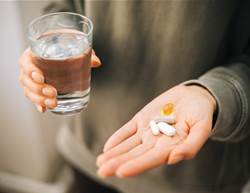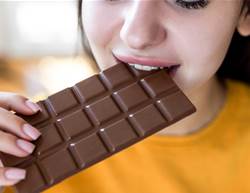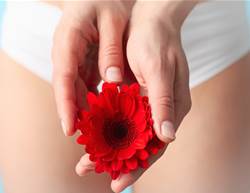Consuming the right vitamins and minerals is crucial to helping your body—from your brain to your fingernails and toenails—function at its best. If your nails are looking brittle or dull, it might be time to add more nail-supporting nutrients to your diet.
“As with your skin, your nails can reveal potential underlying health issues,” says board-certified family medicine physician Dr Brynna Connor. “Changes in nail colour, hangnails, white streaks or spots, brittle or thin nails, spoon-shaped nails and yellow horizontal lines are all worth noting,” she says. “While not always the case, these nail conditions can sometimes be linked to fungal infections or more serious issues like heart disease, liver cirrhosis, kidney disease or even melanoma.” If you notice anything unusual about your nails, it’s best to consult your doctor.
When it comes to improving nail health, Dr Connor generally recommends starting with food-based sources before turning to supplements. “Supplements usually isolate specific vitamins or minerals,” she explains. “Whole food sources are typically more bioavailable, meaning your body may absorb and use them more effectively.”
That said, there are times when supplements are helpful—particularly for people who have trouble absorbing nutrients due to conditions like Crohn’s disease or coeliac disease, or those following vegan or vegetarian diets. “It’s important to speak with your doctor before starting any new supplements to ensure they meet your nutritional needs and won’t interact with any medications,” Dr Connor adds.
Your healthcare provider may suggest blood tests or other assessments to confirm if you’re deficient in certain nutrients. Always opt for supplements that have been third-party tested and come from reputable brands.
Below, we break down the key vitamins and nutrients—found in both food and supplement form—that support strong, healthy nails.
Biotin
“Biotin is essential for the production of keratin, the protein that makes up nails,” says registered dietitian Bree Phillips. “A deficiency may lead to brittle, weak nails.” Other signs of low biotin levels can include hair loss and skin rashes.
A 2017 scientific review found that biotin treatment showed promising results in improving nail conditions like brittleness. However, researchers noted that larger clinical trials are needed to confirm its effectiveness and ideal dosage.
While there’s no official recommended daily intake for biotin, the research suggests an adequate intake of 30 micrograms for women aged 19 and over, or 35 micrograms for those who are lactating. Phillips says you can find biotin in egg yolks, organ meats, dairy, salmon, avocado and nuts. Many over-the-counter nail supplements also include biotin.
Iron
Iron helps deliver oxygen to the nail matrix, which can support healthy nail growth, explains Phillips. “Iron deficiency may lead to brittle nails, concave-shaped nails (known as koilonychia) or vertical ridges,” she says.
The recommended daily intake varies based on age and life stage. For women aged 19 to 50, 18 milligrams per day is suggested, while women 51 and over need 8 milligrams. Iron requirements are also higher during pregnancy and lactation.
“Iron is best absorbed from animal sources, but it’s also found in dark leafy greens, legumes and fortified grains,” Phillips notes. “Pairing iron-rich foods with foods high in vitamin C can improve absorption. Plus, vitamin C supports nail health by contributing to collagen production, which strengthens connective tissue.”
Vitamin B12
Vitamin B12 plays a vital role in the production of red blood cells, which carry oxygen to the body’s tissues—including the nail beds. According to a 2015 scientific review, vitamin B12 has a significant influence on skin and nail health. A deficiency may lead to brittle nails or visible ridges, Phillips notes.
To boost your B12 intake, Phillips recommends eating meat, fish, dairy, nutritional yeast and fortified plant-based milks or cereals. The recommended daily intake is 2.4 micrograms for people aged 14 and over, increasing to 2.6 micrograms during pregnancy and 2.8 micrograms while breastfeeding.
Zinc
“A zinc deficiency can affect nail health, leading to white spots, slowed growth or thinning nails, while sufficient zinc intake supports strong, healthy nails,” says Dr Connor.
Women aged 19 and over should aim for 8 milligrams of zinc daily, increasing to 11 or 12 milligrams if pregnant or breastfeeding. You’ll find zinc in foods like red meat, poultry, wheat germ, seeds, nuts, cashews and almonds.
Magnesium
Magnesium plays a role in stress regulation, bone health and quality sleep, but it also contributes to nail health. One of its functions is supporting protein synthesis, a process that produces keratin—the primary protein in nails, explains Phillips.
For women aged 31 and older, the recommended intake is 320 milligrams per day, with higher amounts needed during pregnancy or lactation. Good dietary sources of magnesium include legumes, nuts, seeds, whole grains and leafy green vegetables like spinach.
Vitamin C
Vitamin C acts as an antioxidant and is key for collagen production, which helps maintain the strength and growth of nails, skin and hair.
Top sources include citrus fruits, tomatoes, potatoes, red and green capsicum, broccoli and strawberries. The recommended daily intake is 75 milligrams for women aged 19 and over, 85 milligrams during pregnancy and 120 milligrams for those who are breastfeeding.
Calcium
Brittle, dry or broken nails can be a symptom of low calcium levels. Alongside its role in keeping nails strong, calcium is crucial for nerve, muscle and hormone function, so getting enough of it is essential. Unfortunately, many people fall short—most adults don’t meet their calcium requirements after childhood, says registered dietitian nutritionist Isabel Maples.
The recommended intake for most adults is between 1,000 and 1,200 milligrams per day, depending on age and health needs. Good sources of calcium include leafy greens like kale and collard greens, yoghurt, broccoli, canned seafood and cottage cheese.
Vitamin E
“Vitamin E is a potent antioxidant that protects nails from oxidative stress and environmental damage,” says Dr Connor. It also helps improve blood flow to the nail bed, which may promote healthy nail growth. Plus, it supports moisture retention, helping prevent dryness and brittleness.
Women aged 14 and older should aim for 15 milligrams of vitamin E daily, with increased needs during breastfeeding. You can find vitamin E in foods like nuts, seeds, green leafy vegetables, fortified cereals and vegetable oils.
Should you take supplements for nail health?
Whenever possible, it’s best to get nutrients from food rather than supplements,” says Phillips. “Whole foods provide a combination of vitamins, minerals and macronutrients that support both nail and overall health. However, supplements can help correct deficiencies or fill nutritional gaps for those who can’t meet their needs through diet alone.”
That said, always speak to your doctor before starting any new supplement. Dietary supplements are not medicines and aren’t intended to treat, prevent or cure disease. Avoid taking supplements while pregnant or breastfeeding unless approved by your healthcare provider and don’t give supplements to children unless recommended by a medical professional.










